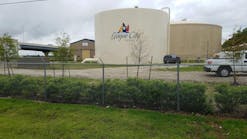I’ve been working from home since my son was born, so in March, when everyone else was sent away from their offices and in-person meetings were canceled, I thought “No biggie, I’ve been doing this forever!” Wrong. It is one thing to work from home while your children are out of the house, but it is quite another to have a five-year-old ask for snacks/water/play time and recite what feels like the longest possible version of the simplest story while you are on a conference call.
I was eagerly looking forward to my son’s first day of kindergarten this year until COVID-19 turned school days into distance learning. Suddenly, my role as a work-from-home mom has turned into a work/teach/lose-my-mind-from-home mom. Needless to say, the kindergartener is logging some serious hours in front of the TV.
Recently, as I sat at our kitchen table working, I overheard the cartoon in the background.
Lincoln: [to the viewers] “Today’s the day that our classmate Chandler is handing out invites to his birthday party. It’s at the sewage treatment plant where his dad works, and everyone says it’s gonna be epic!”
Clyde: “I hear the facilities can process five hundred metric tons of human waste a day!”
Lincoln: “I hear they have a secret room for the mutant animals they find in the sewers!”
Clyde: “I hear, if you take off your mask in there, the stink will burn off your nose hairs!
Lincoln: “I really hope we get invited!”
Say what? I had to rewind the clip to make sure I heard what I thought I did, and sure enough, this episode of The Loud House was all about a classmate holding his birthday party at a wastewater treatment plant, and the other students’ excitement at the prospect of having the chance to be “sprayed with raw sewage.” Um, okay.
It’s certainly an interesting angle for a kid’s cartoon (I wonder who in the writer’s room has a family member employed at a treatment plant?), and even more importantly, it’s another way that we can get water treatment in front of people’s faces early and often. How many other parents, I wonder, watched this episode with their children, and then thought to themselves, “Does our local treatment plant conducts tours, and would my children be interested in going there?” How many of those children might grow up to become operators?
This month, author Dennis Wanless approaches the employee deficit in the industry today. As he writes on page 27, “If our country is to attract, develop, and retain water and wastewater plant operators, then we need to face facts. First and least troublesome of these facts is that water and wastewater plant operation is a nearly invisible profession. Worse, plant operation is not regarded as an especially attractive line of work.”
There are of course, various ways to solve this problem, including work with high school career counselors and others to get young people interested in careers in the water industry. Elevating the role of water service providers in our communities through local events or signage would put operators and the work they do in the spotlight, and might make the work more attractive to some. Of course, tours at local treatment plants (sans sewage spraying) are great, too. But no matter how we get people in the door, once they arrive, I think it’s easy to get them interested in and excited about the work. It’s just like Wanless says, “Operators currently working in the field must be advocates and recruiters regarding the many positives of the drinking water and wastewater profession.” It can only bring the industry forward by pulling back the curtain on the important work being done. WW




